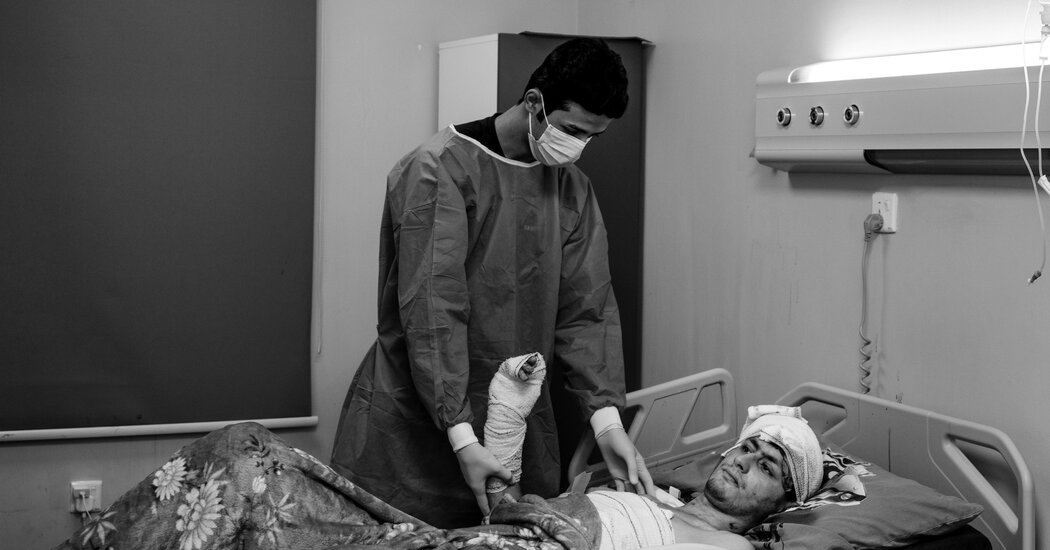Modern Warfare Is Breeding Deadly Superbugs. Why?
Last October, Christina Assi, a 28-year-old photojournalist for Agence France-Presse, took a selfie against the sunset and WhatsApped it to her mother. “Be careful,” her mother replied.Listen to this article, read by Emily Woo ZellerAssi and some colleagues had driven to the border in southern Lebanon to cover artillery clashes between Israel and Hezbollah. Wearing protective helmets and blue flak jackets that said “PRESS” in large white letters, they set up on an exposed hill a good distance away from the smears of smoke on the horizon. Drones buzzed overhead. Suddenly, a tank shell struck right next to Assi’s position, killing her friend and colleague Issam Abdallah, a 37-year-old videographer for Reuters. The force of the impact slammed Assi into the dirt and pelted her with shrapnel.“What happened?” she screamed. “What happened? I can’t feel my legs.” Nearly all of her right calf and half of her left calf had been blown off. Within a minute, another shell struck the Al-Jazeera car, and it erupted in gassy, billowing flames.By the time Assi arrived at the American University of Beirut Medical Center, it was past midnight, and doctors assessed her chance of survival at 50 percent. A hospital near the border had already staked a fixator, a long metal rod with steel prongs on either end, into her leg to stabilize the bone and help control the bleeding.Fady Haddad, the university’s head of vascular surgery, and his team painstakingly repaired and reconnected the damaged blood vessels, but 48 hours later, they had inexplicably clotted and failed. Haddad performed three more operations, but again and again the vessels failed. The reason became clear: Microbes were feasting on Assi’s necrotic flesh. Despite aggressive debridement — daily surgical scrapings of her wounds to clean out the infection — and expensive medications, the tissues in her leg grayed at the edges. The hospital’s microbiology lab identified three possible culprits: two bacteria and a fungus, a mucormycete mold. But as the infections kept worsening in spite of medication, one of Assi’s infectious-disease doctors, Souha Kanj, suspected there might be yet another fungal pathogen at play.We are having trouble retrieving the article content.Please enable JavaScript in your browser settings.Thank you for your patience while we verify access. If you are in Reader mode please exit and log into your Times account, or subscribe for all of The Times.Thank you for your patience while we verify access.Already a subscriber? Log in.Want all of The Times? Subscribe.
Read more →

